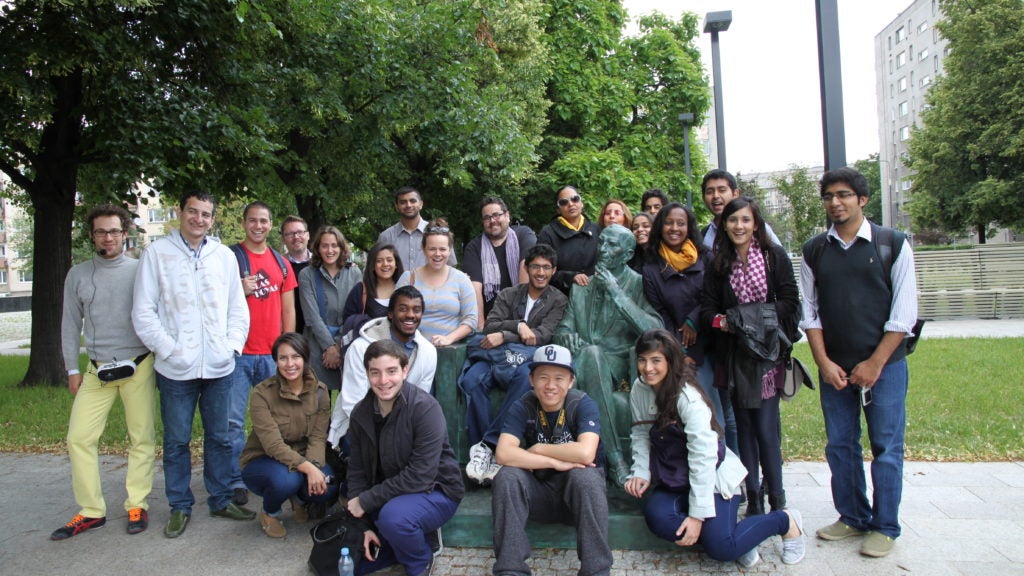Georgetown University Takes the Study of Conflict Resolution out of the Classroom and into the Field

While most Education City students have already begun enjoying the summer break,15 students from Georgetown University’s Zones of Conflict, Zones of Peace program (ZCZP) have just returned to Doha from a trip to Poland and Germany, where over the course of ten days they focused on the theme of “memorialization”, or the ways in which communities and countries remember the tragic events that shape national history and identity.
Previous ZCZP trips have included visits to Northern Ireland, South Africa and Rwanda to study the impact of conflicts and conflict resolution in those regions. This year’s second trip, which ran from June 25th through July 5th, was a return trip to Poland and Germany, to understand the ways in which World War II and the Holocaust of the 1940’s are remembered and memorialized.
Students took walking tours, visited the many memorials that are located throughout cities in both countries, and were treated to specially prepared lectures by the curator of the Galicia museum in Krakow, and Georgetown University professor Dr. Charles King, a renowned specialist in international affairs, social violence, and ethnic politics. While the trip is voluntary and open to any student regardless of their degree, the co curricular program does require the students to enroll in a course that focuses on conflict management and conflict resolution, prior to taking the trip.
Sheena Martinez, student support administrator and trip organizer, stressed the benefits of the program for students from a variety of academic backgrounds. “Whether students come with an interest in economics, culture, or politics, the ZCZP program offers them the unique opportunity to study current events , from their chosen perspective.”
“It’s important to study memorialization to develop an understanding of the world as an interdependent system and increase global awareness of the events that impact international politics,” said Sheena. “At Georgetown, our education model is built on the foundation of providing students with the opportunity to apply the critical thinking skills they learn in the classroom. The ZCZP program gives them the opportunity to think critically about often contentious times in history, and to figure out how they play out in broader society.”
For GU-Q student Fatema Hubail, the ZCZP trip was “a life changing one. I had the opportunity to tread down history’s lane, in an attempt to understand what humanity means. As our pre-trip preparation illustrated, humanity is paradoxical — it means that we carry both humane and inhumane characteristics. This trip made me realize that it is indeed up to individuals like me, who need to stand against injustice, accept every individual as a fellow human being, delve into history, and prevent historical mistakes from ever happening again.”
With the start of the academic year in August, the students will present reports about the trip to faculty, students, and staff – an event that regularly draws a lot of interest from the Georgetown community. Students share their thoughtful analysis of an assigned topic or specific location from the trip itinerary.